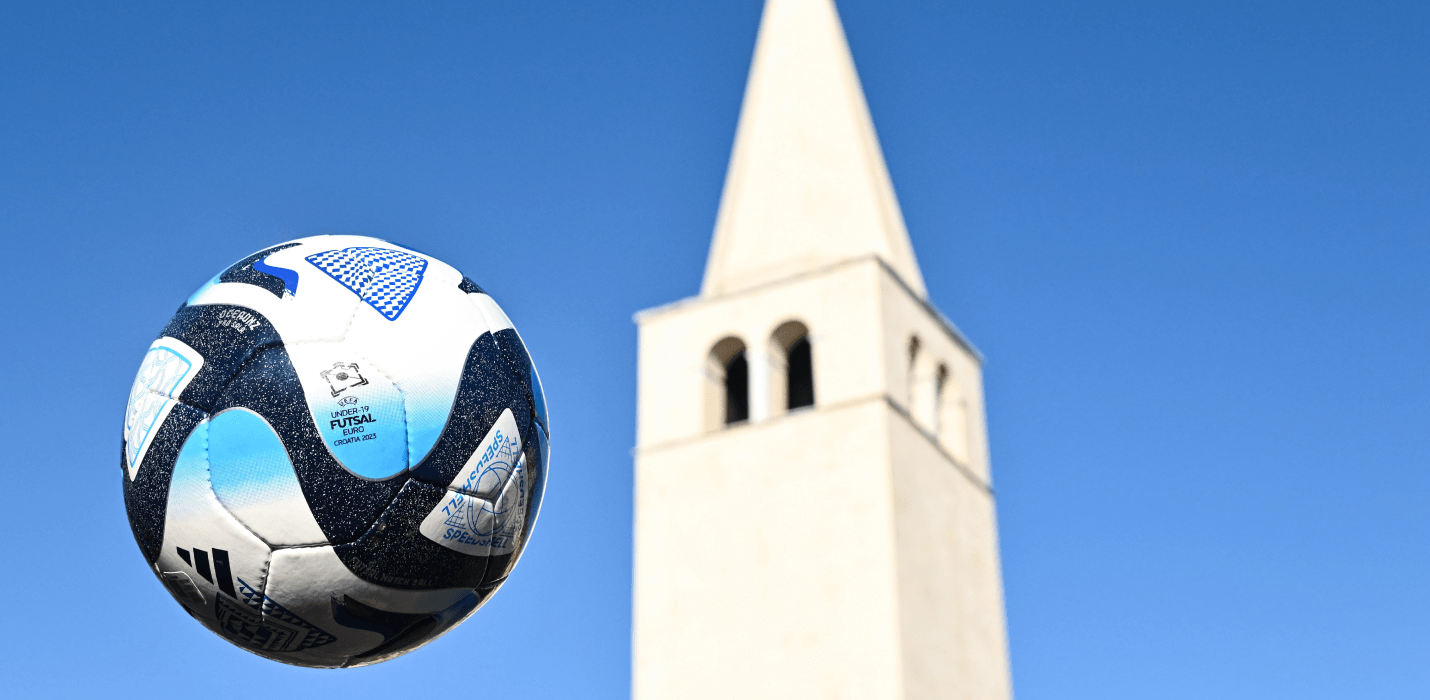“We are Portugal, we muck in together,” explained Lúcio Rocha after firing his team to a 6-2 victory over Spain to clinch the UEFA European Under-19 Futsal Championship for the first time.
The captain of José Luís Mendes’s victorious squad was not wrong in citing fierce team spirit as vital to the seleção’s historic success in Croatia. But in a tournament where Portugal scored 23 times – including nine different scorers and three own goals – and beat two-times champions Spain twice, after trailing 2-0 in both games, player of the tournament Lúcio Rocha also revealed a talent for understatement.
“Portugal were simply on a different level,” said UEFA Technical Observer Mato Stanković. “Spain were strong too, of course. But Portugal could do it all. With excellence and intelligence. They played like a team that had been professional for many years.”
Pierre Jacky, UEFA Technical Observer and former France men’s national team coach, agreed. “Portugal were ahead of the game,” he said. “They had all the solutions in every match … enough quality players to make three rotations of groups of four and keep all the energy for the final, when in the second half the leading players were on court longer.”
Both observers said Portugal boasted “more complete dribblers to play 1v1”, pivots with different styles – particularly Andriy and Pedro Santos – and “more flexibility in attack and defence”.
Lúcio Rocha led the way, finishing as top scorer with five. Two goals in the final edged out Maksym Malynovski and Dmytro Rybitskyi, who both notched four for losing semi-finalists Ukraine, including hat-tricks against finals debutants Slovenia and Finland respectively.
“Lúcio Rocha was the most complete player, the best 1v1 dribbler and very aggressive in defence,” concluded the Technical Observer Panel after the 15 matches at the Žatika Arena in Poreč.
Out of possession, most teams operated a mid-court block ready to press, using player to player marking with cover and exchanges (see Technical Topics). In possession, a “low risk” strategy prevailed in order to avoid conceding easy goals by losing the ball in their own half. The stronger teams sought to exploit the strengths of a “lead dribbler”, noted Jacky and Stanković, who highlighted the rise of the “lateral 1-3” attacking system to breach a half-court defence instead of the more traditional forward 3-1 approach playing to a central pivot (see Technical Topics).
Portugal boasted more 1v1 artists than any other team, with the left-footed Macedo prominent on the opposite wing to Lúcio Rocha. Meanwhile Spain’s Juanico, Italy’s Giuseppe Lavrendi, Slovenia’s Alen Ruis and France’s Gora Diop and Marouane Rezzoug offered a similar but less potent threat in wide areas.
Portugal’s victory completes a clean sweep in the men’s game, with Jorge Braz’s senior team standing proud as World Cup, two-times UEFA European Futsal Championship and inaugural Finalissima winners.


